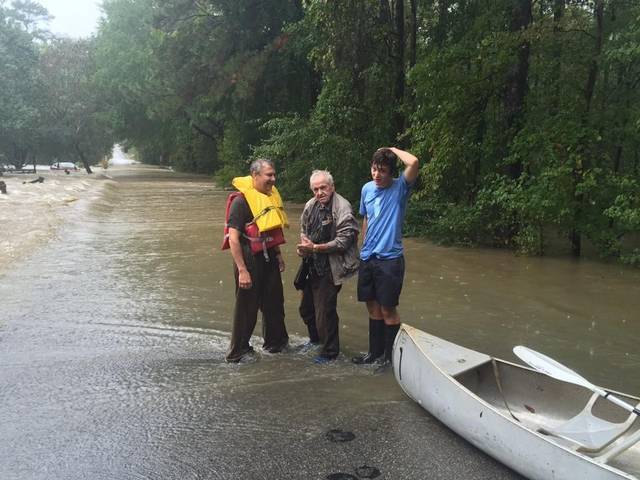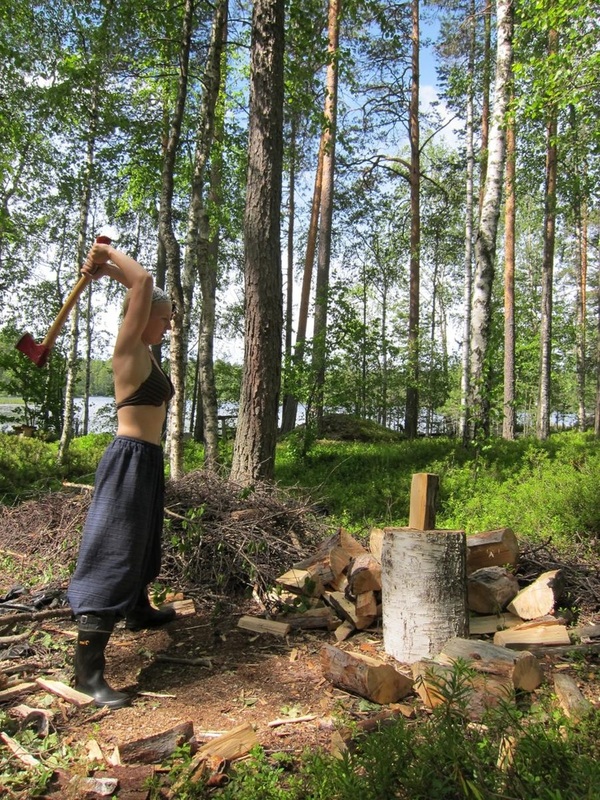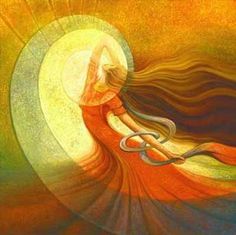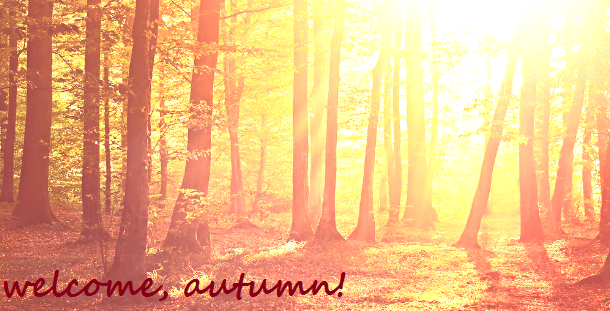|
As the days get shorter and the season turns colder, we can feel underlying fear. It's natural. The latest Earth Joy Writing video guides you through through the fear and into courage. Watch-- and then take some time with your journal to break through what is holding you back.
0 Comments
This week, I encourage you to write about the work you do that you hate.
It might be chores around the house or stressful encounters at the office. It might actually be the very job you have held for the past twenty years and are too afraid to leave. What work are you doing that you hate? Write about this. Write about why you hate it. Write about when you began to hate it, and how that hate has changed over time. Allow yourself to let loose onto paper all the feelings of resentment and anger and despair you feel about this work. And when you are done, get up and walk away. Feel the difference that facing it makes. Begin to open to the possibility of change. Recently after the flooding in my hometown of Columbia, thousands of people heard the heart beat of a different kind of work as they stepped up to lend a hand. Clean up. Make a meal. Donate clothes. Give money. Hug a neighbor.
In October, we have been exploring the meaning of work in our lives here at Earth Joy Writing. This week, I encourage you to think about the work you do that you might not think of as work. Perhaps you care for a child or an elderly parent. Perhaps you keep a garden. Perhaps you speak kindly to a person at your grocery store. Try to rethink about all of this as work, as preparation for Earth Joy Writing the world as we want it to be. Just because you are not paid for something with money does not mean that what you do each and every day is not work. Begin to think of it as work. Value it. Value yourself. Last week, my hometown of Columbia, South Carolina was devastated by flood.
As I do, I responded to it by co-creating poems with Facebook friends. For me, poetry is the way to say the feelings even when they are overwhelming. Here are my 2 poems. Flood Days Saturday lay to rest an officer under Serendipity of moisture from the coast A blessed tomorrow to offer Rain and perturbation at most Solidarity in the Acres giving Alms to translate ghastly into comfort Sunday deluge during sleep Serenity broken by antediluvian baptism Hope and honor and salvation Logjam on the radio Helicopter rescue lines fall Into grateful golden connection Monday a fresco of spaghettification Rise and boil coffee as Devine Becomes a fluid meditation Colloquial and vacuous words spoken More restless expulsion Sleepless and prayerful devastation Tuesday hope and sunshine Volunteer under stillness of apocalypse Until mischievous dams recede Strong and fragile cannot breathe Load cars and then with gratitude Reenter home in frustrated relief Wednesday pray to Yemaya and water And your mama in her faithfulness While trucks pour rocks into the mess And sand is dumped by Chinooks Repeat the word grateful till Your back teeth crumble into goodness Flood Nights Sleepless I see you, tossing and turning, Exhausted except for the dreams burning Thankful within you of what could have been Wet vac and suction, loss and slow motion Warrior pose as you stand in the dark Soaked in your heart watching more dying Sunshine comes slowly on nights like this Inopportune moments of shadows blocking Moist morning coming once night is done.  According to the film The Story of Stuff, 99 percent of the objects we acquire and bring into our homes is disposed of within six months. This means we need more stuff. So we keep working. For the stuff. We split the connections between ourselves and the world around us in order to do this. We choose to ignore the natural resources being used to create and carry the stuff. The chemicals used to produce and preserve the stuff. The trains and airplanes and cargo ships and containers that carry the stuff to us. The trucks that take the stuff from our curbs when we throw it “away.” The Earth and water where the stuff gets dumped. All this splitting from the world begins to split us from ourselves. It destroys our fragile humanness and our connection to our fragile home. What does it mean to be human? What does it mean to do human work? What effects does the work we are doing have on the future? These are the questions that we ask in Earth Joy Writing. We began last week to look at the work we do in a new light. Here’s another writing prompt to help you do that: Write about the work you hate Think about the work you do that you hate. It might be chores around the house or stressful encounters at the office. It might actually be the very job you have held for the past twenty years and are too afraid to leave. What work are you doing that you hate? Write about this. Write about why you hate it. Write about when you began to hate it and how that hate has changed over time. Allow yourself to let loose onto paper all the feelings of resentment and anger and despair you feel about this work. And when you are done, get up and walk away. Feel the difference that facing it makes. Begin to open to the possibility of change. We humans are good at splitting. We split wood. We split atoms. We split mountains to make way for roads and for coal. We split genders. We split ourselves into good and evil. We split ourselves from the natural world that sustains us. We stand at a distance from ourselves and from others, and we call it normal; we call it sane.
If we are to stop the destruction of the environment, we will have to stop the splitting of ourselves from our work. How did we become a society of people who have split what we want from how we work? How can we continue working in disempowered, disconnected, and destructive ways when what we want is health, balance, and peace? This split, this way of working, comes from a worldview in which humans and the natural world are viewed as objects. And in order to survive in this world, we have turned ourselves into objects and turned toward the acquisition of objects in an attempt to find comfort. In the next few weeks, I will share some writing exercises that will help you stop splitting yourself from your work. Here’s the first one: Write about the work you value. Think about the work you do that you might not think of as work. Perhaps you care for a child or an elderly parent. Perhaps you keep a garden. Perhaps you speak kindly to a person at your grocery store. Allow yourself to view all of this as honorable work, as preparation for Earth Joy Writing the world as we want it to be. Write for five minutes about this work. Just because you are not paid for something with money does not mean that what you do each and every day is not work. Begin to honor it as work. Value it. Value yourself. Listen to the following three poems on the Audio page, and then allow yourself some time to reflect and write in your journal about whatever comes up for you.
When you are finished, put your journal down and let your lesson “rise.” Good writing is like homemade bread and takes time to rise. Resist the urge to read it over, criticize, cross out, or share too soon. Let it alone. Give it time. Give yourself time, too. You are writing for the person you are becoming. Then, at least a week—or better, a month—later, return to what you have written and read it now that the writing—and you—have had the time to rise. From this perspective of the self you are rising into and becoming (what some people call the “higher self” and I call the deep, inner voice of wisdom), you will be able to reflect back upon your earlier writing and have the wisdom to understand what your deep, inner voice was saying. Fire Lesson Fire rises when all else falls away. So light is loss, so simple burn. Smoke rises, too, the sign of what is going, the promise of return. The sky is the place our minds go to look for nothingness, but even then great clouds come in. I have learned to greet absence as an opportunity. To see the violence of constant win. Still I dream of one thing I cannot lose. An end to hardness, and nothing more to choose. ~ Cave Lesson You ask me to join you in your cave, and I do. I sit down on the damp floor and we watch the dark walls dripping with yellow light from the candle. You are like that light, I tell you. See how you affect everything around you. You do not believe me. It takes time. I breathe out. I let go of my impatience, even though I know candles do eventually burn out. I must let you take your time. ~ Leaf Lesson This is what we have forgotten: the way the water collects at the bottom of each leaf overnight. And in that drop is a tear. And in that tear is a spider. And when the drop falls, you can hear the spider singing as she throws silk back onto the leaf. In this falling and singing and coming back up is a circle of motion that can save us, if only we would hear it. Next week is the autumn equinox, and this is a time of balance.
There is a wonderful exercise that many business people have to do each year to get ready for tax time, and it is called “balancing the books.” To do it, you record all the expenses for the year, and you balance them by recording all the income. By doing this, you get a clear picture of what the business has lost or gained over the course of the year. Being honest about this is vitally important for the health of the business, and in turn, for the health of our whole economy. You can balance the books, too, now at the autumn equinox—the next time you are in a tight spot, uncertain of your next step, unhappy and stuck, or angry and spinning, sit down with your journal and write about the situation in a way that balances both emotion and event. Take five … If you are drowning in feeling, give yourself five minutes to discharge the emotion, using “I feel … ” statements. Then, for five minutes, switch to a more objective or journalistic style: Write what happened to trigger these feelings—the who, what, when, where, why, and how. Let yourself get the story out. If you are an analyzer, try the opposite and give yourself five minutes to analyze what happened. Then switch. Download your emotion onto the page for five minutes. Let yourself feel. Research by James Pennebaker has actually shown that journaling in this balanced way can help reduce chronic pain from recurring conditions such as asthma and arthritis. Do your own research. Try balancing your books and see what happens. For many people in the United States, this day in September recalls a time of trauma that reverberated for years around the globe. Many of us have healed from individual and collective traumatic histories in our lives.
What lies beyond your own fear? Take 20 minutes with your journal to find out. What used to scare you as a child? Write about this in your journal; you may want to do this exercise in the presence of a trusted friend or therapist or coach. First, spend ten minutes writing about what happened. Who? What? When? Where? Think of yourself as a journalist. Get down the facts. Tell the story. Time yourself so you feel safe and have boundaries around what you are doing. When ten minutes are up, switch to a new page and write about how you felt. Pour out all the feelings. The anger, the fear, the sadness, the numbness, the anxiety. Again, time yourself so you can safely go into these feelings and come back out again. In opening yourself to writing in this balanced way, you are using your hands and your heart and your mind and your memory to create the key that will heal your fear and unlock your own cage. At the end of 20 minutes, answer this question in one sentence: What is beyond my fear? (The answer may surprise you—in a good way!) When people say the earth is warming, we know it is true. We know this not because of statistics or quantitative proof but because we observe the effects of this heat in the lives of humans and the natural world every day.
In a lightning-speed, linear way, humans zoom. We rush away from our violent histories: domestic violence, sexual assault, war, combat trauma, genocide, slavery, colonization, global capitalism, climate change. And we propel ourselves into the future with fantasies of victory: conquest, winning, success. And all of this leads to ever-increasing violence, a sense of disconnection from our minds and our bodies and our spirits, a hole in the center of ourselves that feels like an emptiness that can never be filled. The way out of this is in the present. It is, literally, right here. In this moment. Slow down. We do not have to try. There is nothing we need to do. Do we force the plant to fruit, fruit, fruit? No. We reach out our fingers and pluck the grape gently from its climbing vine and place the round shape on our tongue. Bite slowly. Savor the wet sweetness. Swallow. This is how it gets done. This Labor Day, rest from your labors, from your rushing and trying and pushing and striving. Isn’t it time that you did? |
AuthorCassie Premo Steele, Ph.D., is the author of 13 books and a writing coach. Archives
November 2015
|






 RSS Feed
RSS Feed